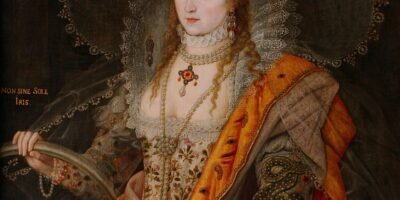15 Interesting Facts About Easter
The time of year when the air was alive with the sweet scent of spring and April’s sun gently caressed the awakening earth. The time when nature dons her most vibrant colors, and the world prepares to celebrate the joyous arrival of Easter.
Easter or Resurrection Sunday, is a Christian holiday celebrated worldwide to commemorate the resurrection of Jesus Christ from the dead, as described in the New Testament of the Bible. It is considered the most important and oldest festival of the Christian Church.
The date of Easter varies each year, as it is determined by the lunar calendar and falls on the first Sunday following the first full moon after the vernal equinox. Generally, Easter is celebrated between March 22nd and April 25th. In this article, we talk about fifteen interesting facts about Easter.
1. The Origins of Easter: A Pagan Celebration
The origin of Easter can be traced back to ancient pagan traditions that celebrated the arrival of spring and the rebirth of nature. These pagan rituals were later merged with Christian beliefs and became a significant event on the Christian calendar.
One of the earliest civilizations to observe a festival similar to Easter was the Babylonians. They celebrated the arrival of spring with a religious festival called Akitu, which honored the rebirth of the sun god, Marduk. The festival symbolized new beginnings and the rejuvenation of life.
The ancient Egyptians also had a spring celebration called the Festival of Osiris. They believed that Osiris, the god of fertility and agriculture, was resurrected after his death, which symbolized the cycle of life, death, and rebirth.
In ancient Greece, a spring festival known as Thesmophoria was celebrated to honor the goddess Demeter and her daughter Persephone. Demeter, as the goddess of agriculture, was worshipped for the return of fertility to the earth after the winter season.
The festival of Easter as we know it today has strong connections to the Jewish tradition of Passover. Passover is an important festival in Judaism that commemorates the liberation of the Israelites from slavery in Egypt.
2. The Symbolism of the Easter Bunny
The Easter Bunny has become one of the most well-known symbols of Easter. According to some legends, the Easter Bunny was originally a hare that laid eggs and was a symbol of fertility. The tradition of the Easter Bunny hiding eggs for children to find may have originated from German immigrants who brought the custom to America in the 18th century.
3. The Connection Between Easter and Spring
Easter is closely connected to the arrival of spring. It is celebrated in many cultures as a time of renewal and rebirth. The Easter season falls around the same time as the spring equinox when the days start to become longer and the weather begins to warm up. The blooming flowers, chirping birds, and the emergence of new life in nature all symbolize the themes of resurrection and new beginnings that are central to Easter.
4. The Significance of Easter Eggs
Easter eggs have long been associated with Easter, and they hold deep symbolism across cultures. Eggs are a symbol of fertility and rebirth, and their association with Easter represents the resurrection of Jesus Christ. In Christianity, the egg is seen as a metaphor for the tomb from which Jesus emerged after his crucifixion. The tradition of decorating eggs also has pagan roots, as eggs were often painted and given as gifts in celebration of the arrival of spring.
5. The Religious Meaning of Easter
For Christians, Easter is the most important and holiest festival of the year. It commemorates the resurrection of Jesus Christ from the dead after his crucifixion. It is believed that Jesus was crucified on Good Friday and rose from the dead three days later, on Easter Sunday. The religious significance of Easter is focused on the themes of sacrifice, redemption, and eternal life.
6. The Various Easter Traditions Around the World

Photo by Kenny Eliason on Unsplash
Easter is celebrated in different ways around the world, with each culture and country adding its own unique traditions and customs. In Spain, for example, Holy Week processions are held, where participants walk through the streets dressed in traditional robes. In Greece, the Easter celebrations involve midnight church services and the breaking of red-dyed eggs in a friendly competition to see whose egg remains unbroken. In Poland, the tradition of Śmigus-Dyngus involves people playfully splashing each other with water on Easter Monday.
7. The Legend of the Easter Lily
The Easter lily is a symbol of purity, hope, and new beginnings. It is believed that when Jesus was resurrected, white lilies sprang up in the Garden of Gethsemane where he prayed before his crucifixion. The legend says that the flowers bloomed where drops of his sweat fell to the ground. Today, Easter lilies are often prominently displayed in churches and homes during the Easter season.
8. The Surprising Connection Between Easter and Passover
Easter and Passover, two significant religious holidays, are often connected. Both festivals occur around the same time and share historical and cultural ties. Easter celebrates the resurrection of Jesus Christ, while Passover commemorates the liberation of the Israelites from slavery in ancient Egypt. In fact, Jesus’s Last Supper, where he shared the Passover meal with his disciples, is believed by many Christians to have taken place on the eve of Passover.
9. The Quirky Easter Celebrations in Different Countries

Photo by Roger Bradshaw on Unsplash
While Easter is celebrated worldwide, each country has its own unique and quirky traditions. In Norway, it is common to read crime novels during Easter, and even television networks air crime shows during the holiday. In Australia, the Easter Bunny is said to deliver chocolate bilbies (an endangered marsupial) instead of the traditional Easter eggs to raise awareness about conservation efforts. In Hungary, men playfully sprinkle or douse women with water on Easter Monday as a playful tradition.
10. The Fascinating History of Easter Parades
Easter parades have a long history and are celebrated in many countries around the world. The tradition of Easter parades can be traced back to 19th-century America, where it started as a display of social status and fashion. Today, Easter parades are known for their vibrant displays of colorful outfits, decorated bonnets, and floats. Famous parades include the one held at New York City’s Fifth Avenue and the White House Easter Egg Roll.
11. The Evolution of Easter Candy
Easter has become synonymous with candy, particularly chocolate eggs and bunnies. The tradition of giving chocolate eggs at Easter started in the 19th century, with the first hollow chocolate eggs being produced in Europe. Over time, the variety and creativity of Easter candy have expanded, with the introduction of marshmallow Peeps, jelly beans, and other themed treats. Today, Easter candy is a multi-billion-dollar industry.
12. The Role of Chocolate in Easter Celebrations
Chocolate plays a central role in Easter celebrations, and chocolate eggs and bunnies are among the most popular treats. The giving and receiving of chocolate during Easter symbolize the joy and abundance of the season. Chocolate eggs, in particular, are often filled with candies or surprises, adding an element of excitement and anticipation to the festivities.
13. The Surprising Origins of the Easter Bonnet
The tradition of wearing an Easter bonnet originated in the 19th century when it was customary for women to wear new and elaborate hats to celebrate Easter. In some Christian denominations, wearing new clothes on Easter Sunday symbolizes a fresh start and the resurrection of Jesus. The Easter bonnet became a fashion statement and a way for women to showcase their style and creativity.
14. The Meaning of the Easter Sunday Feast
Easter Sunday is often marked by a festive and abundant meal shared with family and friends. The feast symbolizes the celebration of Jesus’s resurrection and the victory of life over death. Traditional Easter foods vary from country to country but often include lamb, ham, eggs, and various seasonal vegetables and desserts. The meal is a time for joyous gathering and gratitude for the blessings of life.
15. The Modern-Day Commercialization of Easter
Over time, Easter has become increasingly commercialized, with the focus shifting from its religious and cultural significance to consumerism. The holiday has become associated with shopping, sales, and the exchange of gifts. The commercialization of Easter is evident in the extensive marketing of Easter-themed merchandise, Easter baskets, and decorations. However, amidst the commercial aspect, many individuals and families still find ways to celebrate Easter in a meaningful and traditional manner, keeping the focus on its historical and religious roots.
All in all, Easter is an ancient festival celebrated by millions of people around the world. It has roots in various cultures and traditions, making it a diverse and vibrant holiday. From its religious significance, symbolizing the resurrection of Jesus Christ, to its secular customs such as the Easter Bunny and egg hunts, Easter encompasses a wide range of beliefs and practices.
Whether it is the exchanging of gifts, enjoying festive feasts, or participating in community events, Easter brings joy, hope, and renewal to individuals and communities. Regardless of personal beliefs, Easter serves as a time for reflection, gratitude, and togetherness. So, as the spring season blooms, let us join in celebrating the rich history and cultural significance of Easter while embracing the spirit of love, forgiveness, and new beginnings that it represents.
Planning a trip to Paris ? Get ready !
These are Amazon’s best-selling travel products that you may need for coming to Paris.
Bookstore
- The best travel book : Rick Steves – Paris 2023 – Learn more here
- Fodor’s Paris 2024 – Learn more here
Travel Gear
- Venture Pal Lightweight Backpack – Learn more here
- Samsonite Winfield 2 28″ Luggage – Learn more here
- Swig Savvy’s Stainless Steel Insulated Water Bottle – Learn more here
Check Amazon’s best-seller list for the most popular travel accessories. We sometimes read this list just to find out what new travel products people are buying.










